Tandon Faculty First Look 2021 Scholars
Awad Abdelhalim
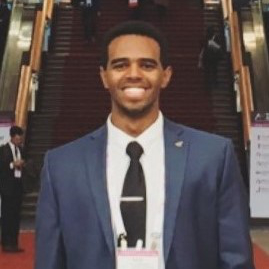 Awad Abdelhalim received the B.Sc. degree in Civil Engineering from the University of Khartoum, Sudan in 2014 and is currently a Ph.D. Candidate in The Charles E. Via Jr. Department of Civil and Environmental Engineering at Virginia Tech, with a focus on Transportation Systems Engineering. Awad’s graduate research spanned across multiple aspects of traffic safety and ITS applications, including driver behavior modeling, transit systems improvement, crash dataset analytics, and traffic video inference for real-time safety assessment. Awad also serves as an Instructor of Record in the College of Engineering, he worked for two years at the Center for Enhancement of Engineering Diversity and is currently the Vice President and Director of Legislative Affairs for the Virginia Tech Graduate Student Assembly. He has industry experience working in the transportation engineering private sector and with the Washington D.C Department of Transportation.
Awad Abdelhalim received the B.Sc. degree in Civil Engineering from the University of Khartoum, Sudan in 2014 and is currently a Ph.D. Candidate in The Charles E. Via Jr. Department of Civil and Environmental Engineering at Virginia Tech, with a focus on Transportation Systems Engineering. Awad’s graduate research spanned across multiple aspects of traffic safety and ITS applications, including driver behavior modeling, transit systems improvement, crash dataset analytics, and traffic video inference for real-time safety assessment. Awad also serves as an Instructor of Record in the College of Engineering, he worked for two years at the Center for Enhancement of Engineering Diversity and is currently the Vice President and Director of Legislative Affairs for the Virginia Tech Graduate Student Assembly. He has industry experience working in the transportation engineering private sector and with the Washington D.C Department of Transportation.
Dan Li
![]() Dan Li is a Ph.D. candidate in Industrial Engineering at the H. Milton Stewart School of Industrial and Systems Engineering, expected to graduate in May 2021. Dan received her M.S. degree in Statistics from Georgia Tech in 2020, and her B.S. in Mechanical Engineering from Tsinghua University, Beijing, China, in 2015. Dan's research interests include cybersecurity for Cyber-Physical Systems (CPS) / Industrial Internet of Things (IIoT), machine learning, sensor-based anomaly detection, complex system modeling, and reliability engineering. Her Ph.D. thesis is entitled "Online Detection Against Cyberattacks in CPS".
Dan Li is a Ph.D. candidate in Industrial Engineering at the H. Milton Stewart School of Industrial and Systems Engineering, expected to graduate in May 2021. Dan received her M.S. degree in Statistics from Georgia Tech in 2020, and her B.S. in Mechanical Engineering from Tsinghua University, Beijing, China, in 2015. Dan's research interests include cybersecurity for Cyber-Physical Systems (CPS) / Industrial Internet of Things (IIoT), machine learning, sensor-based anomaly detection, complex system modeling, and reliability engineering. Her Ph.D. thesis is entitled "Online Detection Against Cyberattacks in CPS".
Dan is the recipient of the best student paper award in Energy Systems and the runner-up of the best student paper award in Data Analytics and Information Systems (DAIS) at the IISE Annual Meeting. She is also a student member of IEEE, INFORMS, IISE, and ASA.
Darius Carter
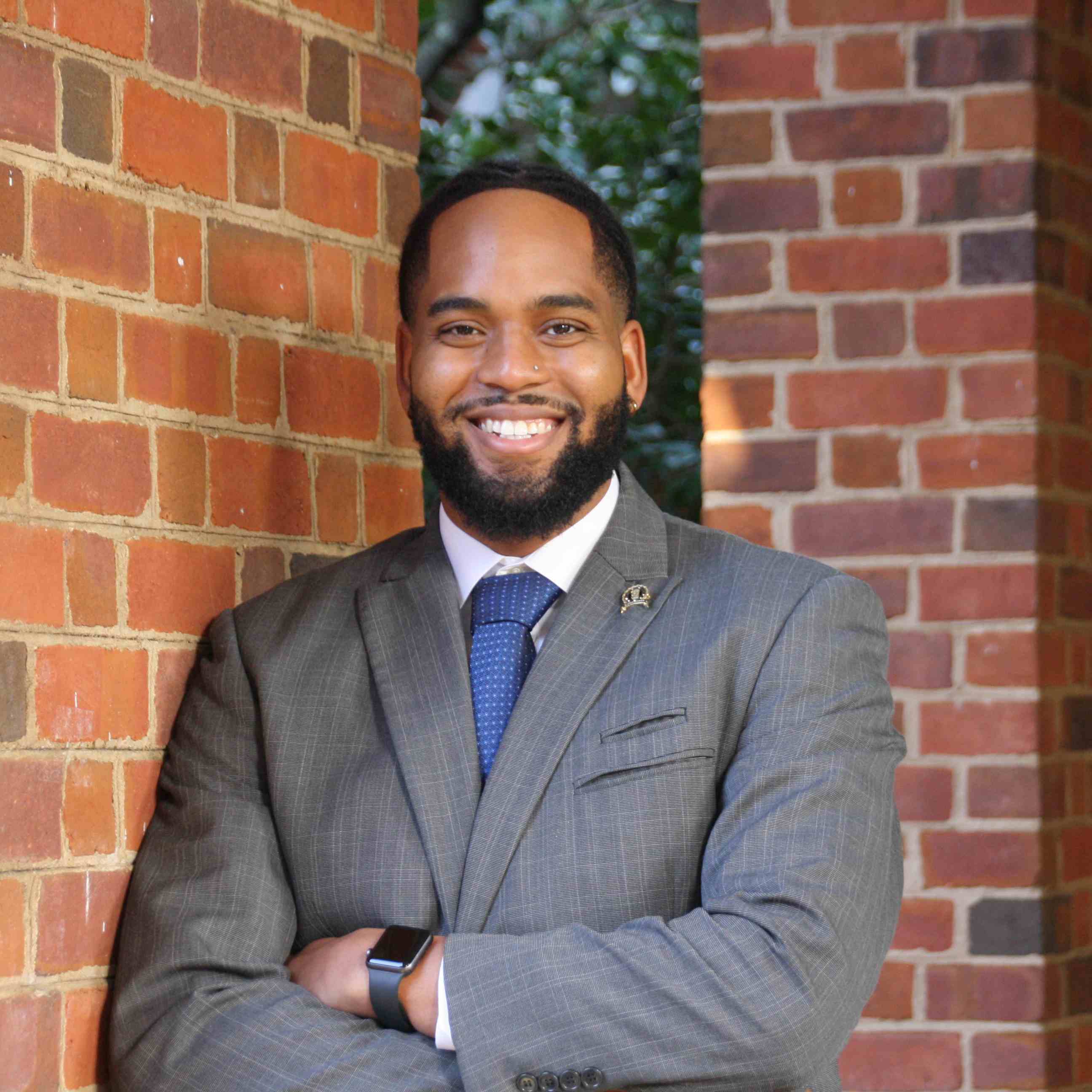 Darius Carter hails from Richmond, Virginia, and is currently a Ph.D. Candidate in Mechanical & Aerospace Engineering at the University of Virginia (UVA). He graduated from Highland Springs High school in Henrico County in 2013. He then enrolled at UVA, where he graduated with his B.S. in Mechanical Engineering with a Minor in Material Science in 2017. As a Ph.D. student, his research focuses on unmanned aerial vehicles and their safety when flying near boundaries. He currently is the Co-President of Black Graduate and Professional Student Organization, Recruitment Chair for the Mechanical & Aerospace Graduate Student Board, School of Engineering & Applied Sciences (SEAS), Co-Chair for UVA’s Graduate Recruitment Initiative Team, Member of the search committee for the Dean of Engineering, and Academic Mentor with UVA Athletics.
Darius Carter hails from Richmond, Virginia, and is currently a Ph.D. Candidate in Mechanical & Aerospace Engineering at the University of Virginia (UVA). He graduated from Highland Springs High school in Henrico County in 2013. He then enrolled at UVA, where he graduated with his B.S. in Mechanical Engineering with a Minor in Material Science in 2017. As a Ph.D. student, his research focuses on unmanned aerial vehicles and their safety when flying near boundaries. He currently is the Co-President of Black Graduate and Professional Student Organization, Recruitment Chair for the Mechanical & Aerospace Graduate Student Board, School of Engineering & Applied Sciences (SEAS), Co-Chair for UVA’s Graduate Recruitment Initiative Team, Member of the search committee for the Dean of Engineering, and Academic Mentor with UVA Athletics.
Outside of school and research he is a dedicated member of Alpha Phi Alpha Fraternity, Inc. and the National Society of Black Engineers. He enjoys hanging out with friends, adventures, and traveling. He has a small dog named Forrest. He enjoys watching and playing sports especially basketball. He desired to inspire the next generation of black engineering students. His future goals are to graduate this year and become a faculty member at a research-intensive university.
Eric Corbett
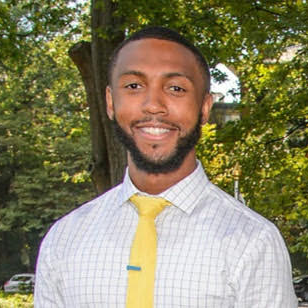 Eric Corbett is currently a postdoctoral researcher at New York University’s Center for Urban Science and Progress. His background is in computer science and human-computer interaction. He has worked on projects across various subjects including resisting and countering gentrification; supporting trust in civic relationships between local government officials and marginalized communities; and most recently, creating new opportunities for democratic participation in public sector algorithm use. Throughout his research, the overarching thread has been exploring the intersections between design, social justice, democracy, and technology.
Eric Corbett is currently a postdoctoral researcher at New York University’s Center for Urban Science and Progress. His background is in computer science and human-computer interaction. He has worked on projects across various subjects including resisting and countering gentrification; supporting trust in civic relationships between local government officials and marginalized communities; and most recently, creating new opportunities for democratic participation in public sector algorithm use. Throughout his research, the overarching thread has been exploring the intersections between design, social justice, democracy, and technology.
Guanjin Wang
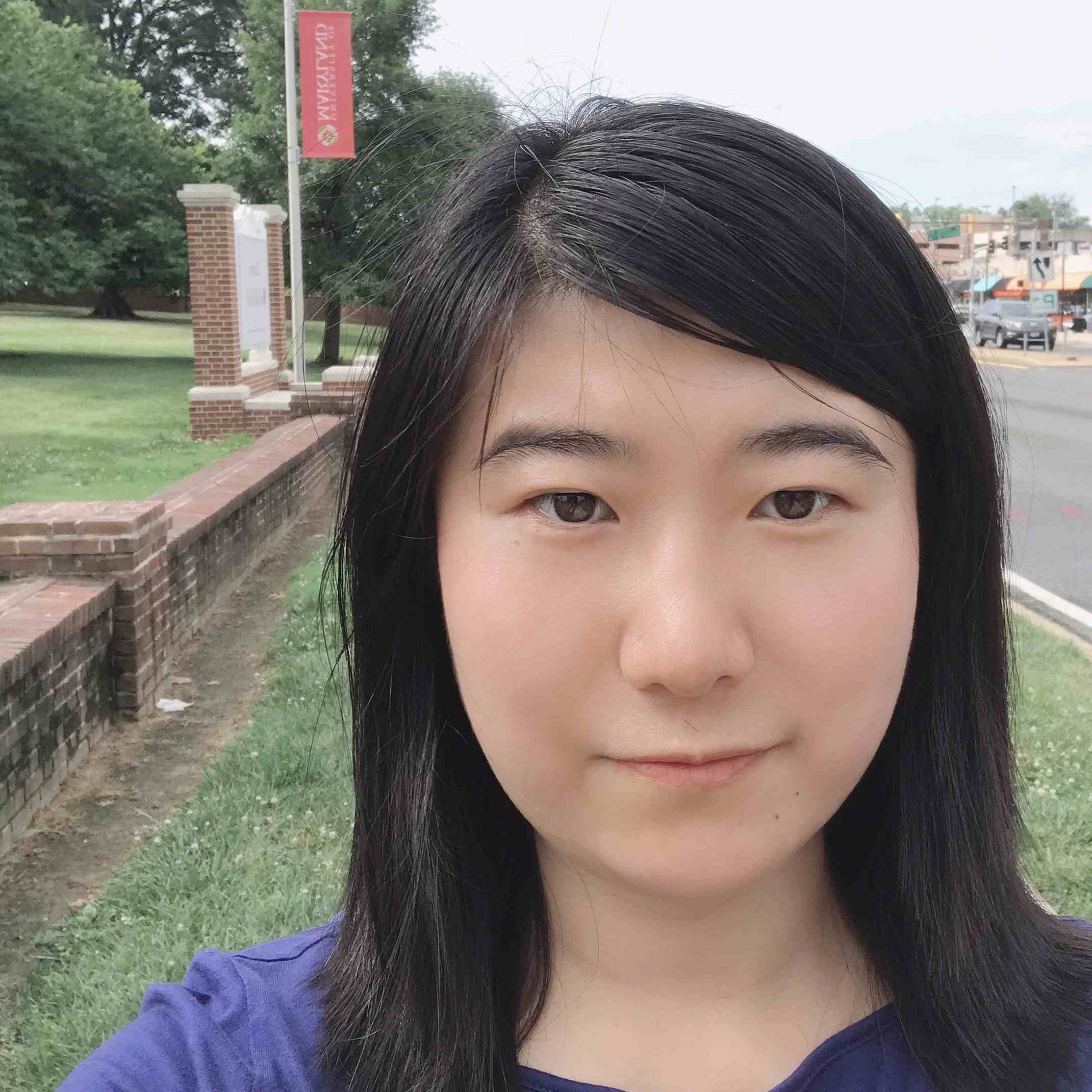 Dr. Guanjin Wang is currently a postdoc of Mechanical Engineering at the University of Maryland. She received her BS (Theoretical and Applied Mechanics) from Harbin Institute of Technology, China, 1st MS (Structural Engineering) from the same institution, 2nd MS (Civil Engineering) from University of Minnesota, Twin Cities, 3rd MS (Mechanical Engineering) from University of Maryland, College Park (UMD), and PhD (Mechanical Engineering) from UMD. Her Ph.D. research focuses on physics-based and data-driven modeling of hybrid robot motion on deformable terrain. Her current research interest is to advance the state of the art of extreme event modeling and computational robophysics by leveraging deep learning.
Dr. Guanjin Wang is currently a postdoc of Mechanical Engineering at the University of Maryland. She received her BS (Theoretical and Applied Mechanics) from Harbin Institute of Technology, China, 1st MS (Structural Engineering) from the same institution, 2nd MS (Civil Engineering) from University of Minnesota, Twin Cities, 3rd MS (Mechanical Engineering) from University of Maryland, College Park (UMD), and PhD (Mechanical Engineering) from UMD. Her Ph.D. research focuses on physics-based and data-driven modeling of hybrid robot motion on deformable terrain. Her current research interest is to advance the state of the art of extreme event modeling and computational robophysics by leveraging deep learning.
Julianna Ge
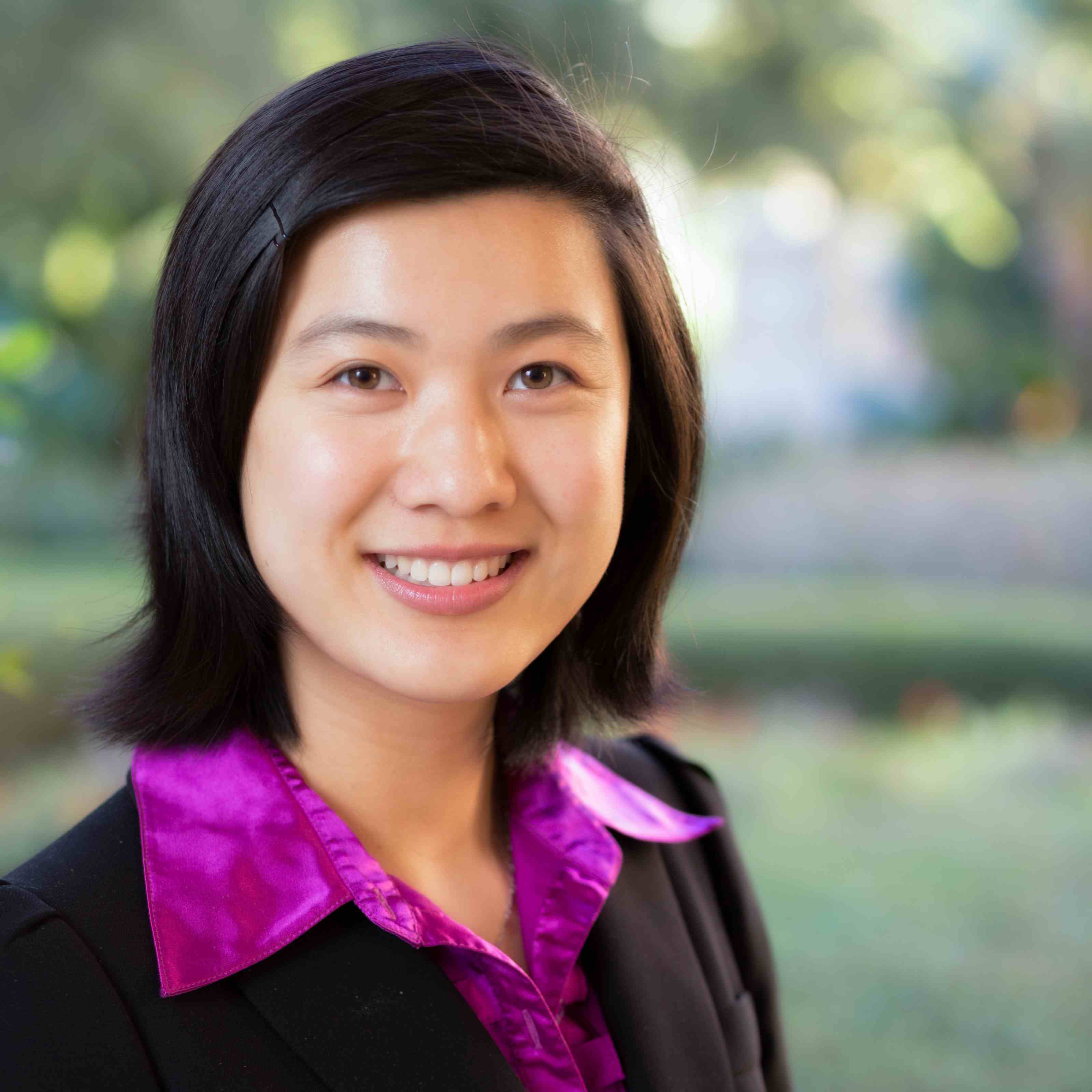 Julianna Ge is a Ph.D. candidate in the School of Engineering Education at Purdue University. She is also a National Science Foundation Graduate Research Fellow and a Purdue Doctoral Fellow. She is also the winner of Purdue’s 2020 Three Minute Thesis Competition. At Purdue, she developed and taught a novel course on thriving for undergraduate engineering students. At the broadest level, her research interests intersect the fields of engineering education, positive psychology, and human development to understand cognitive and noncognitive factors related to success for undergraduate engineering students. Prior to Purdue, she received dual bachelor’s degrees in Industrial Engineering and Human Development and Family Studies from the University of Illinois at Urbana-Champaign. Her prior work experiences include product management, consulting, tutoring, marketing, and information technology.
Julianna Ge is a Ph.D. candidate in the School of Engineering Education at Purdue University. She is also a National Science Foundation Graduate Research Fellow and a Purdue Doctoral Fellow. She is also the winner of Purdue’s 2020 Three Minute Thesis Competition. At Purdue, she developed and taught a novel course on thriving for undergraduate engineering students. At the broadest level, her research interests intersect the fields of engineering education, positive psychology, and human development to understand cognitive and noncognitive factors related to success for undergraduate engineering students. Prior to Purdue, she received dual bachelor’s degrees in Industrial Engineering and Human Development and Family Studies from the University of Illinois at Urbana-Champaign. Her prior work experiences include product management, consulting, tutoring, marketing, and information technology.
Luis Zambrano-Cruzatty
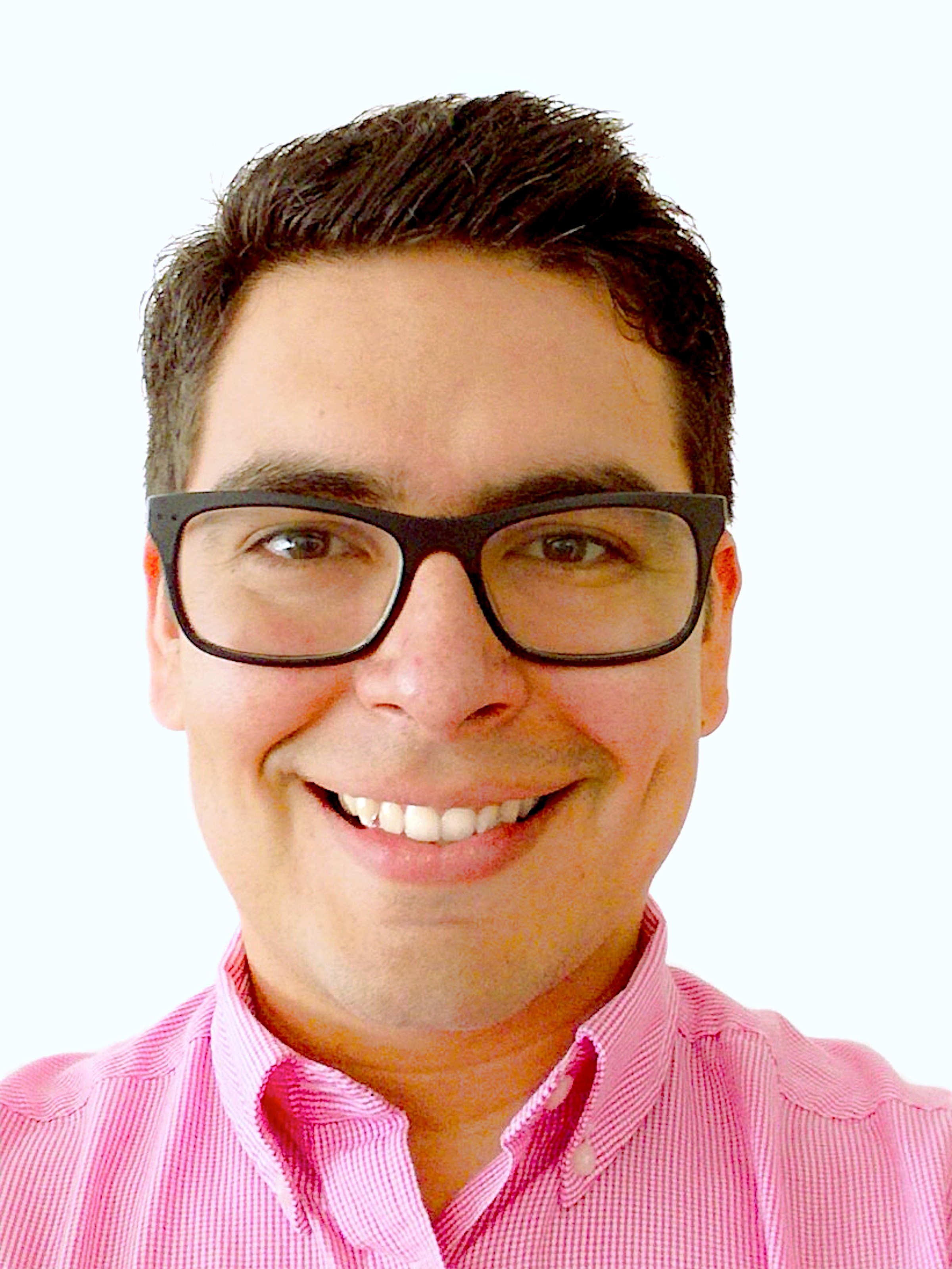 Luis Eduardo Zambrano Cruzatty is a Civil Engineering Ph.D. student at Virginia Tech, working under Professor Alba Yerro. His research focuses on the numerical simulation of soil-water-structure interaction, the development of strain-rate sensitive constitutive equations, and eolian sediment transport using MPM. From Portoviejo-Ecuador, Luis started his studies in Civil Engineering at the Escuela Superior Politécnica del Litoral University (ESPOL), located in Guayaquil, Ecuador. In 2017 he obtained a master's degree focused on geotechnical engineering from Virginia Tech. The same year, he transitioned towards a doctoral program with Professor Alba Yerro's research group. Luis has also completed the Future Professoriate graduate certificate and joined the Disaster Resilience and Risk Management doctoral program in 2019 at Virginia Tech. Luis's work experience started in 2011 when he joined Consulnac Cia Ltda as a Jr. geotechnical engineer. In 2013 Luis joined the Oceanographic Research Institute of the Ecuadorian Navy (INOCAR). He was part of the XVIII Ecuadorian Antarctic Expedition. In 2014 he founded Xense Cia Ltda and was the manager of the company until 2016.
Luis Eduardo Zambrano Cruzatty is a Civil Engineering Ph.D. student at Virginia Tech, working under Professor Alba Yerro. His research focuses on the numerical simulation of soil-water-structure interaction, the development of strain-rate sensitive constitutive equations, and eolian sediment transport using MPM. From Portoviejo-Ecuador, Luis started his studies in Civil Engineering at the Escuela Superior Politécnica del Litoral University (ESPOL), located in Guayaquil, Ecuador. In 2017 he obtained a master's degree focused on geotechnical engineering from Virginia Tech. The same year, he transitioned towards a doctoral program with Professor Alba Yerro's research group. Luis has also completed the Future Professoriate graduate certificate and joined the Disaster Resilience and Risk Management doctoral program in 2019 at Virginia Tech. Luis's work experience started in 2011 when he joined Consulnac Cia Ltda as a Jr. geotechnical engineer. In 2013 Luis joined the Oceanographic Research Institute of the Ecuadorian Navy (INOCAR). He was part of the XVIII Ecuadorian Antarctic Expedition. In 2014 he founded Xense Cia Ltda and was the manager of the company until 2016.
Paola Zanella
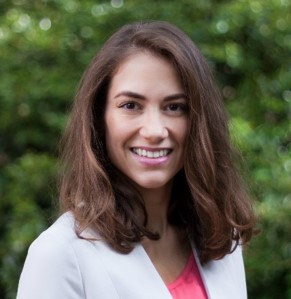 Paola Zanella is a Ph.D. candidate and graduate assistant at the Aerospace Systems Design Laboratory (ASDL), Georgia Institute of Technology. After a bachelor’s and a master’s in Aerospace Engineering from Padova, Italy, she continued her studies at Georgia Tech where she has already earned her second master’s degree and now, she is pursuing her Ph.D. Since she joined ASDL in January 2016, she has been involved in important research, such as innovative eco-friendly and eco-efficient helicopter technologies to improve aircraft affordability and mission performance. Because of her strong passion for rotorcraft, she decided to focus her Ph.D. thesis on improving helicopter safety, through the physics-based investigation of accidents related to loss of tail rotor effectiveness and the analysis of helicopter flight data. Currently, she is sponsored by the Federal Aviation Administration, under the Partnership to Enhance General Aviation Safety, Accessibility, and Sustainability (PEGASAS) Center of Excellence. She is now doing an Internship at the FAA, in which she is conducting several simulator analyses in order to increase the physics-based models used and obtain more reliable simulations. In the past years, she published her research findings in various important conferences, including different Vertical Flight Society Forums. Also, she is the Deputy Chair of the Vertical Flight Society Safety Technical Committee and a member of two US Helicopter Safety Teams (Helicopter Safety Enhancement 81 and 91), which exemplify her strong dedication in enhancing rotorcraft safety.
Paola Zanella is a Ph.D. candidate and graduate assistant at the Aerospace Systems Design Laboratory (ASDL), Georgia Institute of Technology. After a bachelor’s and a master’s in Aerospace Engineering from Padova, Italy, she continued her studies at Georgia Tech where she has already earned her second master’s degree and now, she is pursuing her Ph.D. Since she joined ASDL in January 2016, she has been involved in important research, such as innovative eco-friendly and eco-efficient helicopter technologies to improve aircraft affordability and mission performance. Because of her strong passion for rotorcraft, she decided to focus her Ph.D. thesis on improving helicopter safety, through the physics-based investigation of accidents related to loss of tail rotor effectiveness and the analysis of helicopter flight data. Currently, she is sponsored by the Federal Aviation Administration, under the Partnership to Enhance General Aviation Safety, Accessibility, and Sustainability (PEGASAS) Center of Excellence. She is now doing an Internship at the FAA, in which she is conducting several simulator analyses in order to increase the physics-based models used and obtain more reliable simulations. In the past years, she published her research findings in various important conferences, including different Vertical Flight Society Forums. Also, she is the Deputy Chair of the Vertical Flight Society Safety Technical Committee and a member of two US Helicopter Safety Teams (Helicopter Safety Enhancement 81 and 91), which exemplify her strong dedication in enhancing rotorcraft safety.
Rishita Das
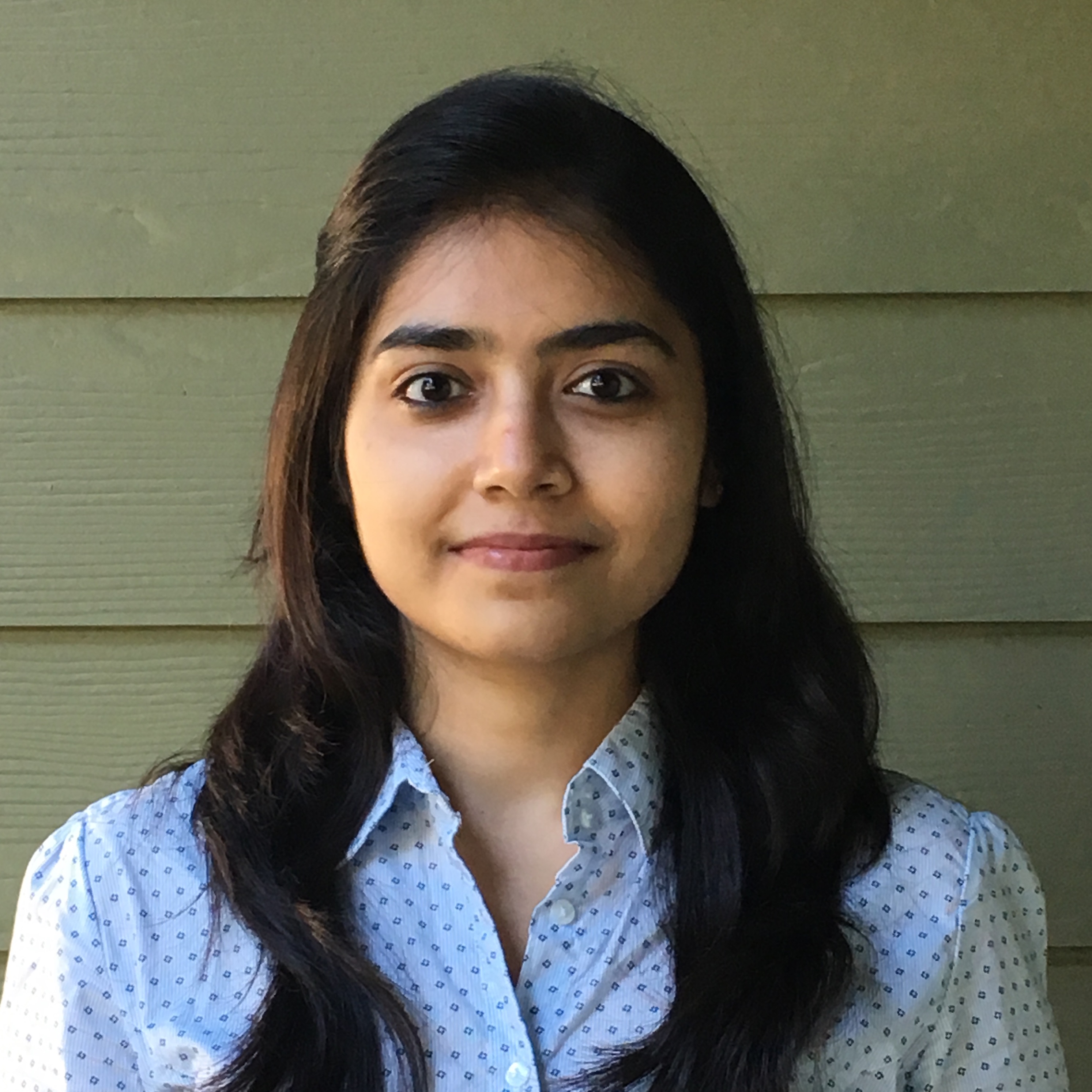 Rishita Das is a Ph.D. candidate in the Department of Aerospace Engineering at Texas A&M University, pursuing research in turbulence under the supervision of Dr. Sharath Girimaji. She holds Bachelor of Technology and Master of Technology degrees in Aerospace Engineering from the Indian Institute of Technology Kharagpur, India, where she graduated top of her class with an Institute Silver Medal. She is also an Amelia Earhart Fellow and a DAAD-WISE scholar.
Rishita Das is a Ph.D. candidate in the Department of Aerospace Engineering at Texas A&M University, pursuing research in turbulence under the supervision of Dr. Sharath Girimaji. She holds Bachelor of Technology and Master of Technology degrees in Aerospace Engineering from the Indian Institute of Technology Kharagpur, India, where she graduated top of her class with an Institute Silver Medal. She is also an Amelia Earhart Fellow and a DAAD-WISE scholar.
Her doctoral dissertation research focuses on geometry and dynamics of velocity gradients in turbulent flows. Her work will help improve the understanding of small-scale processes in turbulence. Her developed data-driven stochastic model for velocity gradient evolution will be able to accurately reproduce the turbulence small-scale physics, leading toward computationally viable simulations of complex turbulent flows.
In the future, she aspires to develop expertise in the wide-ranging physics underlying turbulence and further enhances the modeling and simulation capabilities for turbulence in engineering flows.
Sarah A. Blackowski
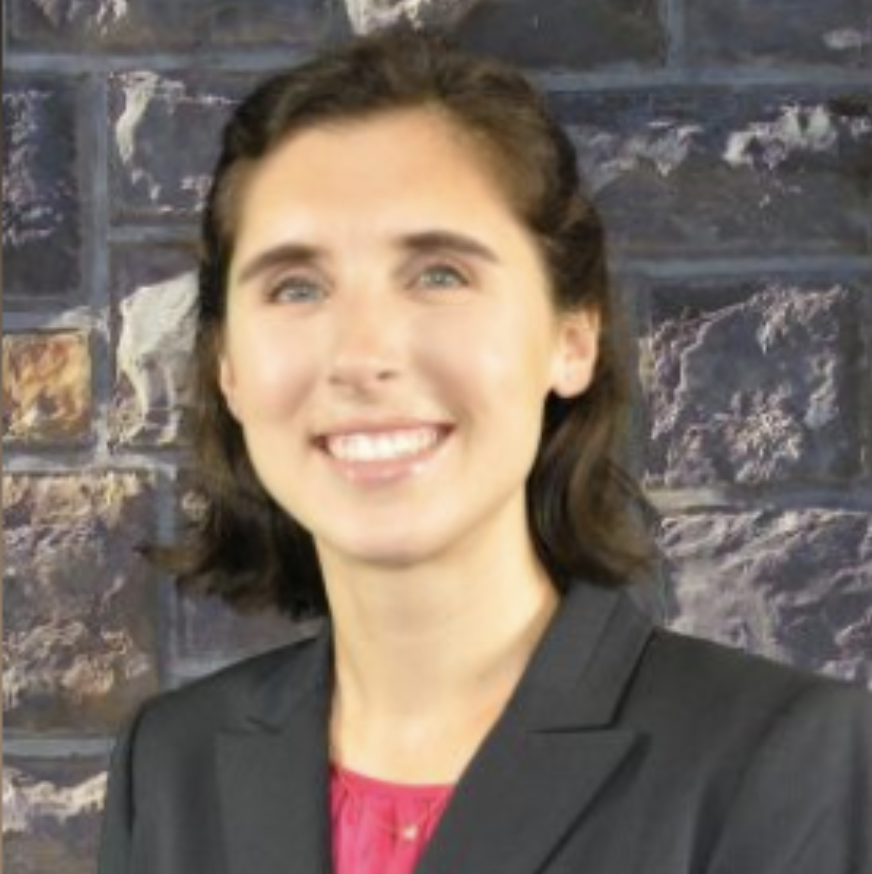 Sarah Blackowski is a Ph.D. Candidate in the Department of Engineering Education at Virginia Tech. She is currently serving as a Graduate Teaching Assistant for the Foundations of Engineering course series. She has served as an Instructor of Record, co-Instructor, and ABET assessment review for these courses and played a key role in transitioning the course online in Spring 2020.
Sarah Blackowski is a Ph.D. Candidate in the Department of Engineering Education at Virginia Tech. She is currently serving as a Graduate Teaching Assistant for the Foundations of Engineering course series. She has served as an Instructor of Record, co-Instructor, and ABET assessment review for these courses and played a key role in transitioning the course online in Spring 2020.
Sarah has held a number of research positions during her 7 years of engineering education experience including working on 8 different NSF grant-funded projects. One of her strong suits is the ability to work on large, multi-disciplinary teams in different roles including but not limited to data collection and analysis, grant writing and reviewing, consulting, and ethical human research management. Sarah’s dissertation research explores how early-career, tenure-track, engineering faculty at R1 institutions learn about teaching through narrative methods. Results of this study will yield narrative stories of early-career faculty experience learning about teaching which will be valuable to engineering education as the faculty perspective on how they learn about teaching is lacking in the field. Sarah has co-authored 3 journal publications and 15 conference papers.
Sijia Geng
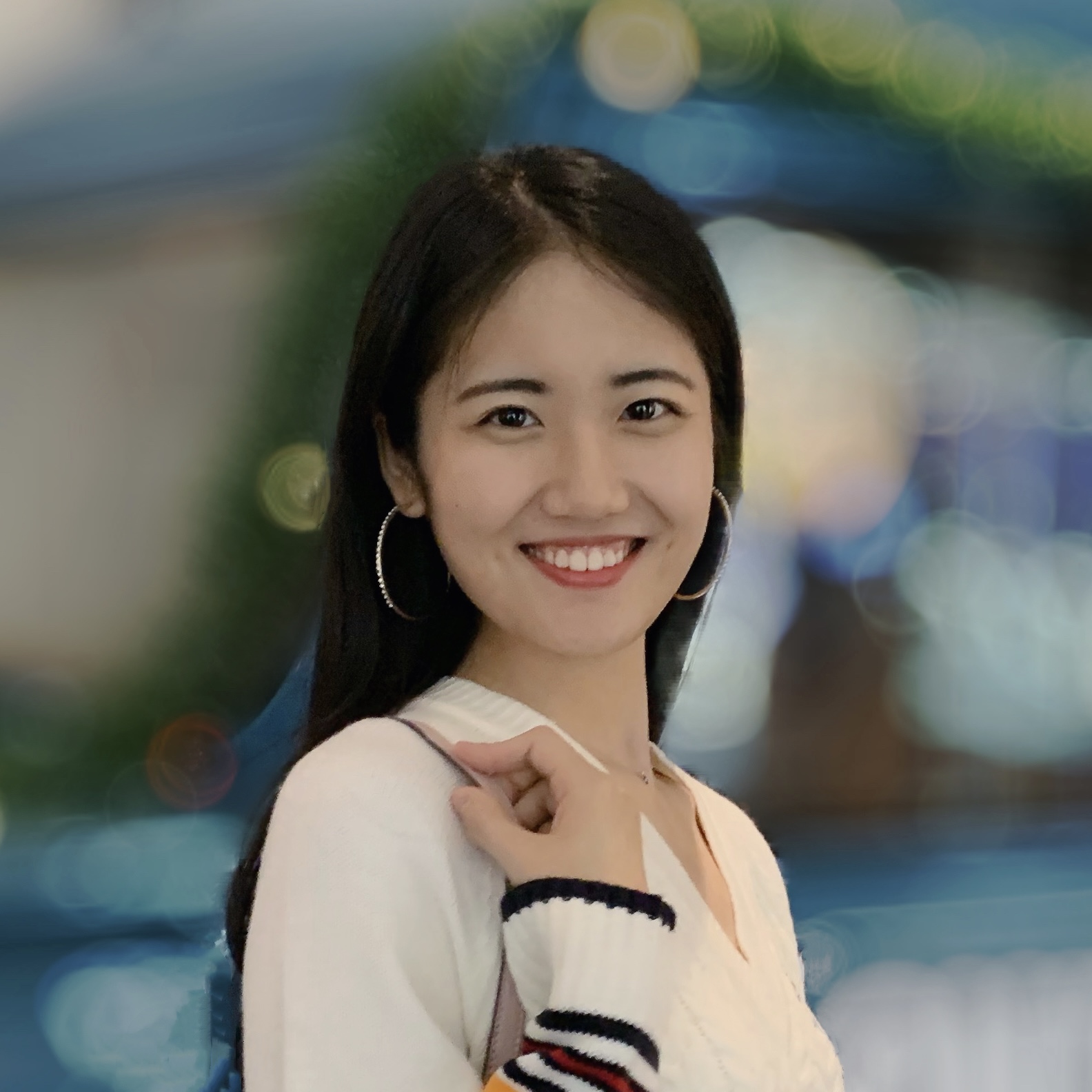 Sijia is a 5th-year PhD student in the Department of Electrical and Computer Engineering, University of Michigan. She works on power systems dynamics, control and optimization. Her dissertation addresses critical challenges, including uncertainties, dynamics and stability issues that are arising as renewable distributed energy resources (DERs) are integrated in large scale into power systems. Her research is also seeking to identify potential opportunities for promoting clean energy, particularly for rural area electrification. As the world confronts the limits and problems associated with the use of oil, gas and coal, the integration of DERs which use power sources such as wind and solar will become increasingly important to the world at large.
Sijia is a 5th-year PhD student in the Department of Electrical and Computer Engineering, University of Michigan. She works on power systems dynamics, control and optimization. Her dissertation addresses critical challenges, including uncertainties, dynamics and stability issues that are arising as renewable distributed energy resources (DERs) are integrated in large scale into power systems. Her research is also seeking to identify potential opportunities for promoting clean energy, particularly for rural area electrification. As the world confronts the limits and problems associated with the use of oil, gas and coal, the integration of DERs which use power sources such as wind and solar will become increasingly important to the world at large.
Sijia’s long-term professional aspiration is to become a faculty member in higher education, working on both theoretical and applied research. Her work will focus on solving fundamental and challenging problems that arise in multidisciplinary fields such as power systems, energy management systems, and control systems.
Soheila Shabaniverki
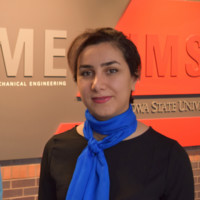 Soheila Shabaniverki received the B.S. degree in materials science and engineering in 2011 and the M.S. degree in materials science and engineering in 2013, all from Sharif University of Technology, Tehran, Iran. She is currently pursuing a Ph.D. degree in the Department of Mechanical Engineering at Iowa State University, Ames, USA. Her research interests include microfluidics, microrheology of hydrogels, functional materials and stimuli-responsive structures for applications in soft robotics and actuators.
Soheila Shabaniverki received the B.S. degree in materials science and engineering in 2011 and the M.S. degree in materials science and engineering in 2013, all from Sharif University of Technology, Tehran, Iran. She is currently pursuing a Ph.D. degree in the Department of Mechanical Engineering at Iowa State University, Ames, USA. Her research interests include microfluidics, microrheology of hydrogels, functional materials and stimuli-responsive structures for applications in soft robotics and actuators.
Vanamala Venkataswamy
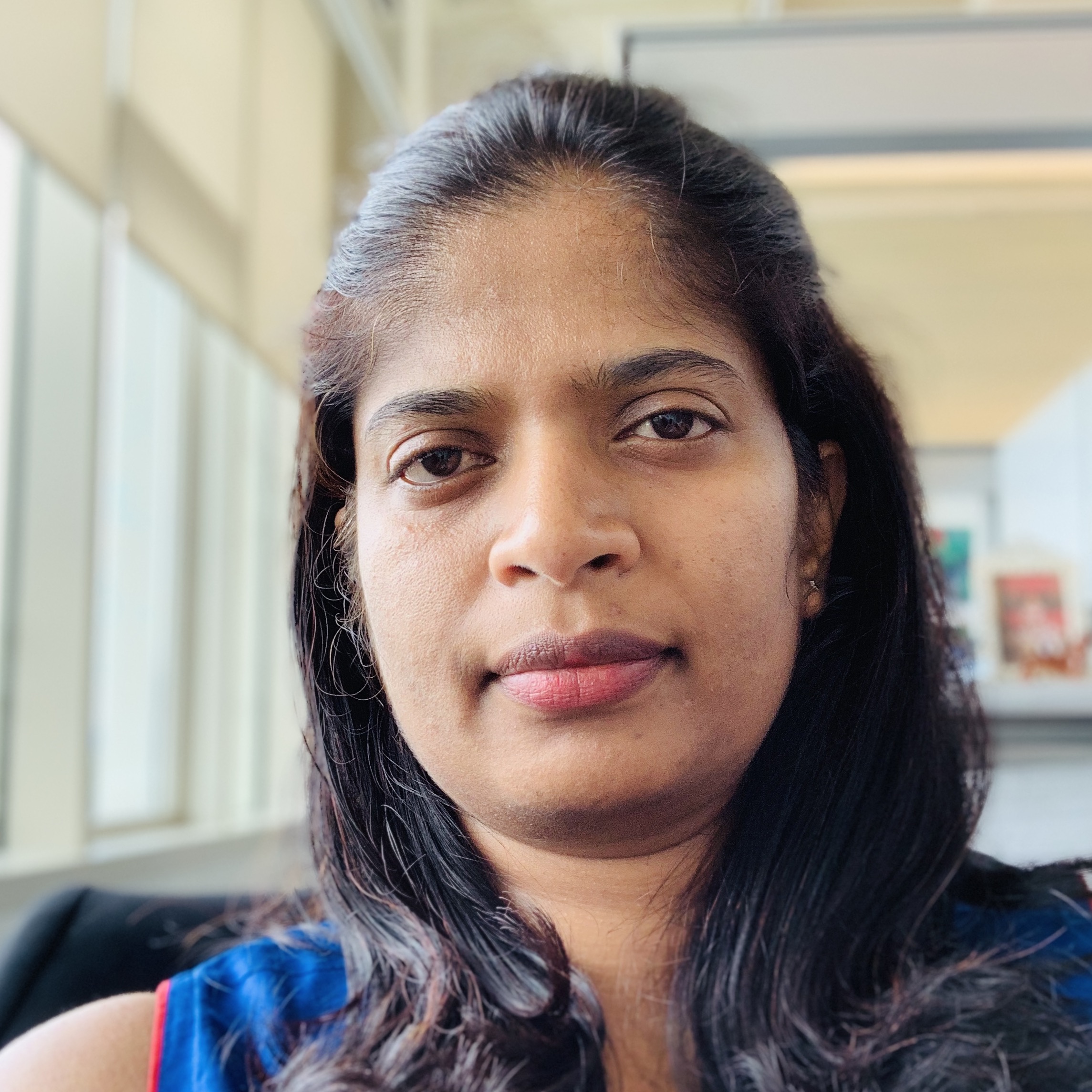 I am Vanamala (Vana) Venkataswamy. I am a Ph.D. candidate in the Department of Computer Science at the University of Virginia. My advisor is Dr. Andrew Grimshaw. My research interests include Job Scheduling, Cloud Computing, Green Datacenters, and Reinforcement Learning. I am excited to work on efficient research management in distributed systems, especially in datacenters powered using renewable energy resources. I completed my Master's at the University of Southern California (USC), specializing in High-Performance Computing. I have worked as a system software engineer at USC-Information Sciences Institute and Center for Development of Advanced Computing (India) in the past.
I am Vanamala (Vana) Venkataswamy. I am a Ph.D. candidate in the Department of Computer Science at the University of Virginia. My advisor is Dr. Andrew Grimshaw. My research interests include Job Scheduling, Cloud Computing, Green Datacenters, and Reinforcement Learning. I am excited to work on efficient research management in distributed systems, especially in datacenters powered using renewable energy resources. I completed my Master's at the University of Southern California (USC), specializing in High-Performance Computing. I have worked as a system software engineer at USC-Information Sciences Institute and Center for Development of Advanced Computing (India) in the past.
Victor Garcia
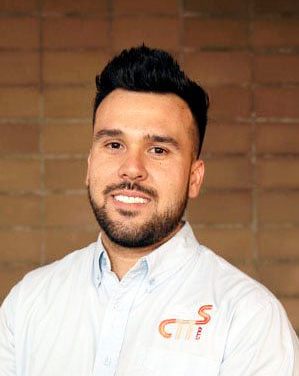 Victor Garcia is completing his doctoral degree in Civil Engineering from The University of Texas at El Paso (UTEP). Victor’s doctoral dissertation contributed to the development of performance-engineered mix design specifications to produce balanced mix designs. For more than seven years, he has conducted research projects sponsored by the Texas Department of Transportation in the areas of transportation engineering and pavement materials. He has published more than fifteen journal articles and presented more than ten technical presentations in his areas of expertise. His research interests are in the areas of transportation infrastructure and pavement materials, civil engineering applications in Smart Cities, advancement of STEM education, and career opportunities for underrepresented minority groups. He is currently a research associate of the Yes SHE Can program sponsored by the US Department of Education, and the H-AGEP program sponsored by the National Science Foundation. He will continue his professional career as a civil engineer, researcher and mentor at the Airfield and Pavements Branch of the Geotechnical and Structures Laboratory from the US Department of Defense.
Victor Garcia is completing his doctoral degree in Civil Engineering from The University of Texas at El Paso (UTEP). Victor’s doctoral dissertation contributed to the development of performance-engineered mix design specifications to produce balanced mix designs. For more than seven years, he has conducted research projects sponsored by the Texas Department of Transportation in the areas of transportation engineering and pavement materials. He has published more than fifteen journal articles and presented more than ten technical presentations in his areas of expertise. His research interests are in the areas of transportation infrastructure and pavement materials, civil engineering applications in Smart Cities, advancement of STEM education, and career opportunities for underrepresented minority groups. He is currently a research associate of the Yes SHE Can program sponsored by the US Department of Education, and the H-AGEP program sponsored by the National Science Foundation. He will continue his professional career as a civil engineer, researcher and mentor at the Airfield and Pavements Branch of the Geotechnical and Structures Laboratory from the US Department of Defense.
Vidushi Goyal
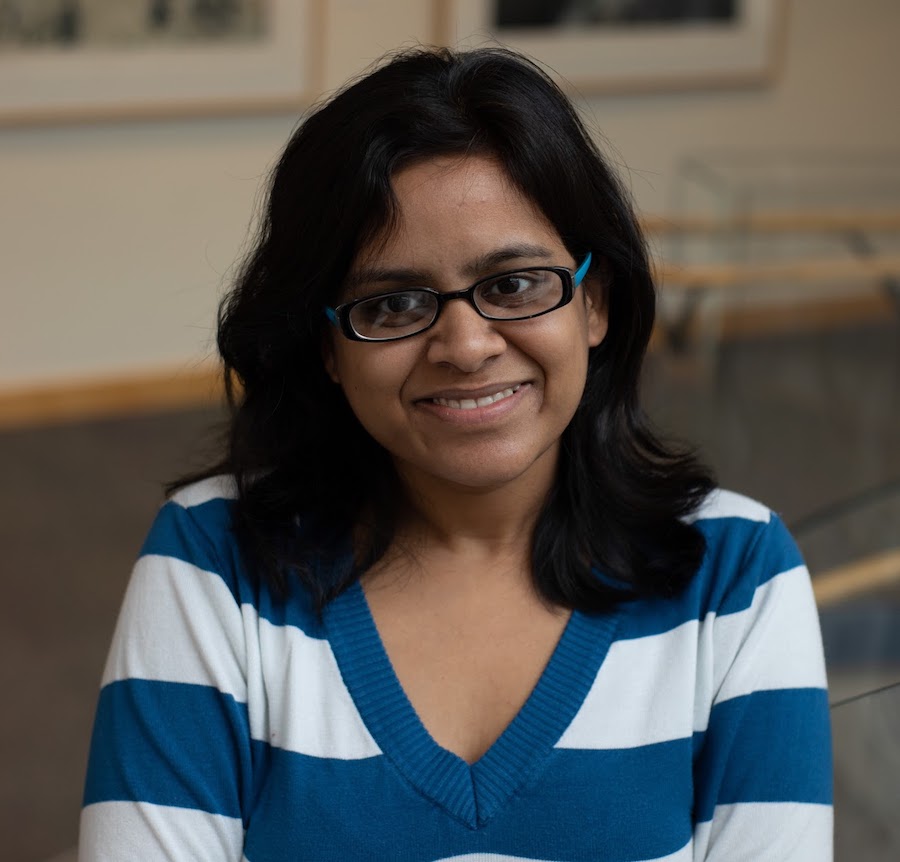 Vidushi Goyal is a Ph.D. candidate in the computer science department at the University of Michigan. Her broad research area is computer architecture with a special interest in optimizing edge computation and enhance user experience on various edge platforms. She received a Rackham fellowship for the academic year 2016-2017. Prior to joining U Mich, she received Bachelors of Technology in ECE from the Indian Institute of Technology Kharagpur. She expects to graduate in the summer of 2022.
Vidushi Goyal is a Ph.D. candidate in the computer science department at the University of Michigan. Her broad research area is computer architecture with a special interest in optimizing edge computation and enhance user experience on various edge platforms. She received a Rackham fellowship for the academic year 2016-2017. Prior to joining U Mich, she received Bachelors of Technology in ECE from the Indian Institute of Technology Kharagpur. She expects to graduate in the summer of 2022.

